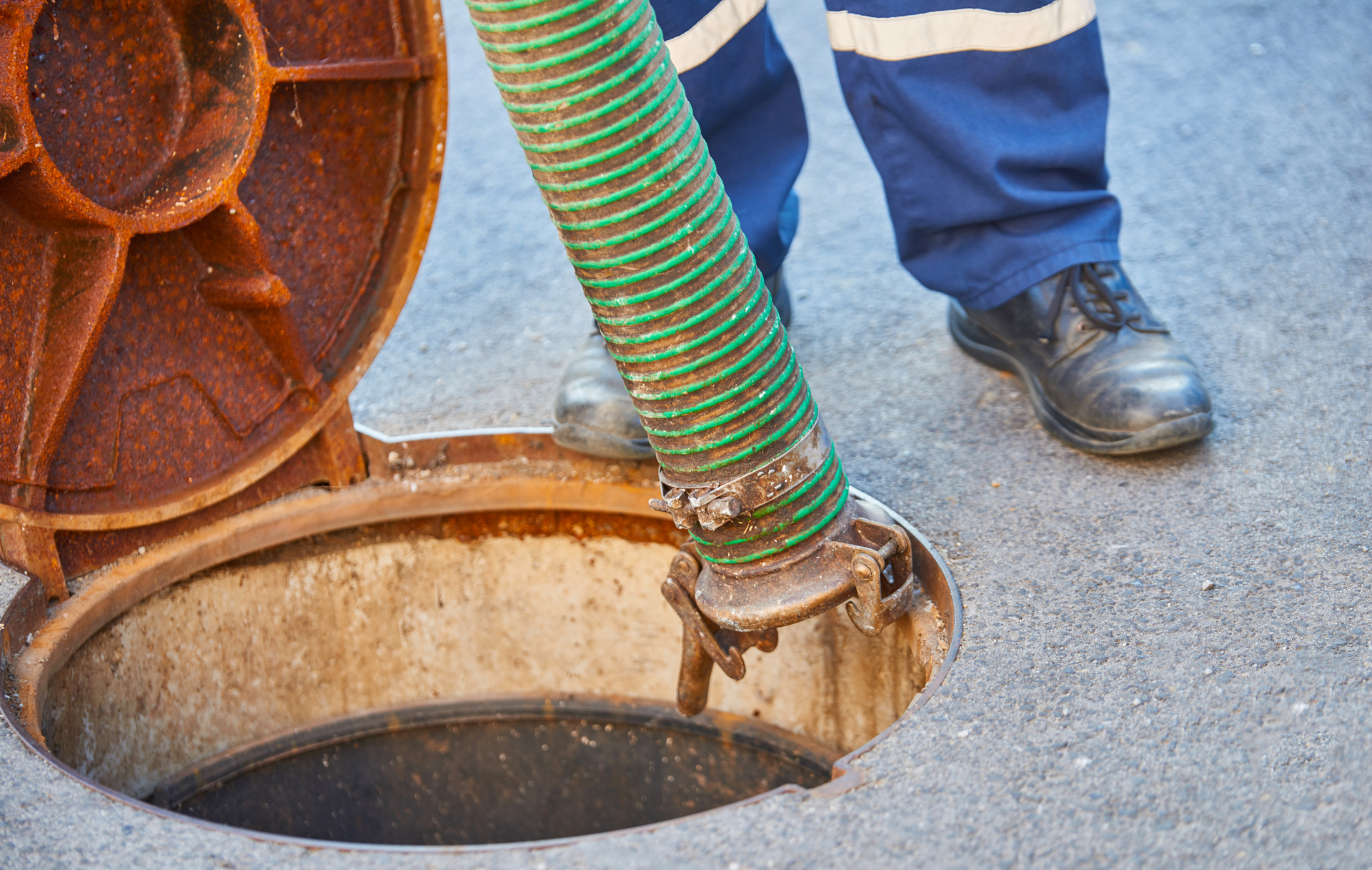Avoiding Catastrophe: How Regular Septic System Maintenance Prevents Costly Repairs in Oxford
November 15, 2023
Avoiding Catastrophe: How Regular Septic System Maintenance Prevents Costly Repairs in Oxford
Maintaining a septic system might not be high on your list of priorities, but in the picturesque town of Oxford, Mississippi, it's a crucial aspect of homeownership. Neglecting your septic system can lead to costly and inconvenient repairs that are easily avoidable through regular maintenance. In this comprehensive guide, we'll explore the financial benefits of consistent septic system maintenance and how it can prevent expensive repairs in Oxford.
The Financial Toll of Septic System Neglect
Before diving into the merits of septic system maintenance, it's essential to understand the potential financial consequences of neglect:
Costly Repairs: Septic system failures can result in expensive repairs, including the replacement of damaged components and extensive landscaping restoration.
Property Depreciation: A malfunctioning septic system can reduce your property's value, making it less appealing to potential buyers.
Healthcare Expenses: Contaminated water from a failing septic system can lead to health issues and medical bills, adding to the financial burden.
Environmental Fines: Inadequately maintained septic systems that cause pollution may lead to environmental fines and legal expenses.
The Key to Prevention: Regular Maintenance
1. Septic Tank Pumping
Routine septic tank pumping is a cornerstone of septic system maintenance. This process removes accumulated solids, preventing them from clogging the system. Regular pumping ensures your septic tank functions efficiently, reducing the risk of costly backups and repairs.
2. System Inspections
Scheduled septic system inspections allow professionals to identify minor issues before they escalate into major problems. By catching problems early, you can address them at a fraction of the cost of extensive repairs.
3. Drain Field Maintenance
The drain field is a critical component of your septic system. Proper maintenance, including avoiding heavy vehicles and planting trees away from the area, ensures its longevity. Neglecting the drain field can lead to costly repairs or even replacement.
The Financial Benefits of Regular Maintenance
Now, let's explore the financial advantages of investing in regular septic system maintenance:
1. Cost Savings
The cost of routine maintenance, such as septic tank pumping and inspections, is significantly lower than that of major repairs or system replacement. By spending a little on maintenance, you can avoid the substantial financial burden of emergency repairs.
2. Property Value Preservation
A well-maintained septic system contributes to your property's value. Potential buyers are more attracted to homes with properly functioning septic systems, translating into a higher resale value.
3. Preventing Health-Related Expenses
A malfunctioning septic system can lead to water contamination, posing health risks to your family. Preventing waterborne illnesses through maintenance saves you not only health-related expenses but also the inconvenience of dealing with illness.
4. Avoiding Environmental Penalties
In Oxford, like many other places, environmental regulations are stringent. Failure to maintain your septic system properly can lead to fines and legal expenses. Regular maintenance ensures you remain compliant with environmental laws.
5. Peace of Mind
Knowing that your septic system is in good working order provides peace of mind. You won't have to worry about unexpected emergencies or costly repairs, allowing you to enjoy your home without financial stress.
Your Role in Septic System Maintenance
While professionals like Oxford Septic Services play a crucial role in septic system maintenance, homeowners also have responsibilities:
Monitor Water Usage: Be mindful of water consumption to prevent overloading the septic system.
Septic-Safe Products: Use septic-safe cleaning products and avoid flushing harmful chemicals down the drain.
Landscaping Considerations: Be cautious when landscaping near your septic system to prevent damage to pipes and tanks.
Conclusion
In Oxford, where the charm of a small town meets the responsibilities of homeownership, regular septic system maintenance is not just a choice; it's a necessity. By investing in maintenance, you're not only ensuring the longevity and efficiency of your septic system but also avoiding the financial headaches that come with neglect. So, remember, by taking proactive steps today, you can avoid the catastrophe of costly repairs tomorrow.

Navigating the regulations surrounding septic systems is crucial for homeowners and businesses to ensure compliance, protect public health, and safeguard the environment. In this guide, Oxford Septic Services provides valuable insights into septic system regulations, offering clarity and guidance for property owners. Chapter 1: Regulatory Overview Oxford Septic Services provides an overview of the regulatory landscape governing septic systems, including local, state, and federal regulations. Understanding the regulatory framework is essential for property owners to comply with legal requirements and avoid potential fines or penalties. Chapter 2: Permitting Requirements Property owners may be required to obtain permits for the installation, repair, or modification of septic systems. Oxford Septic Services explains the permitting process, including the application requirements, approval procedures, and associated fees, to help property owners navigate the process successfully. Chapter 3: Inspection and Maintenance Requirements Many jurisdictions have inspection and maintenance requirements for septic systems to ensure proper functioning and prevent environmental contamination. Oxford Septic Services outlines these requirements, including the frequency of inspections, maintenance tasks, and reporting obligations, to help property owners fulfill their regulatory obligations. Chapter 4: Environmental Considerations Septic systems can impact groundwater quality, surface water contamination, and sensitive ecosystems if not properly maintained. Oxford Septic Services discusses the environmental considerations associated with septic systems, emphasizing the importance of responsible waste management practices to protect the environment and public health. Chapter 5: Compliance Assistance Complying with septic system regulations can be complex, but Oxford Septic Services offers assistance to property owners. Whether it's helping with permit applications, conducting inspections, or providing maintenance services, Oxford Septic Services ensures that property owners have the support they need to meet regulatory requirements. Chapter 6: Future Trends and Developments Regulations governing septic systems are subject to change as new technologies emerge and environmental concerns evolve. Oxford Septic Services discusses future trends and developments in septic system regulations, helping property owners stay informed and adapt to regulatory changes proactively. Conclusion: Understanding septic system regulations is essential for property owners to maintain compliance, protect public health, and preserve the environment. With insights from Oxford Septic Services, property owners can navigate regulatory requirements confidently and ensure the proper functioning of their septic systems for years to come.

Septic system failures can be costly, inconvenient, and hazardous to both property and health. Fortunately, with proper maintenance and proactive measures, many septic system failures can be prevented. In this guide, Oxford Septic Services shares valuable tips to help homeowners and businesses avoid septic system failures and ensure the long-term functionality of their systems. Chapter 1: Regular Maintenance Inspections Routine maintenance inspections are essential for identifying potential issues early and preventing costly repairs. Oxford Septic Services recommends scheduling regular inspections to assess the condition of your septic system and address any problems before they escalate. Chapter 2: Timely Septic Tank Pumping Regular septic tank pumping is crucial for removing accumulated solids and preventing clogs and backups. Oxford Septic Services advises homeowners to adhere to a consistent pumping schedule based on factors such as household size and usage to maintain optimal tank capacity. Chapter 3: Proper Waste Disposal Practices Improper disposal of household waste can overload septic systems and lead to system failures. Oxford Septic Services recommends avoiding flushing non-biodegradable items, grease, and chemicals down drains and toilets to prevent clogs and damage to the system. Chapter 4: Protecting the Drain Field The drain field plays a critical role in wastewater treatment and dispersal. To prevent drain field failure, Oxford Septic Services advises property owners to avoid parking vehicles or installing structures over the drain field and to maintain proper landscaping to prevent root intrusion. Chapter 5: Prompt Repairs and Maintenance Addressing minor issues promptly can prevent them from escalating into major septic system failures. Oxford Septic Services recommends contacting a professional at the first sign of trouble, such as slow drains, foul odors, or sewage backups, to prevent further damage. Chapter 6: Environmental Awareness Understanding the environmental impact of septic system failures can motivate property owners to prioritize proper maintenance and care. Oxford Septic Services emphasizes the importance of responsible waste management and eco-friendly practices to protect local water sources and ecosystems. Conclusion: By following these tips from Oxford Septic Services, homeowners and businesses can take proactive steps to prevent septic system failures and maintain the functionality of their systems for years to come. With regular maintenance, proper waste disposal practices, and prompt repairs, property owners can avoid costly and disruptive septic system failures and enjoy peace of mind knowing their systems are in good working order.
